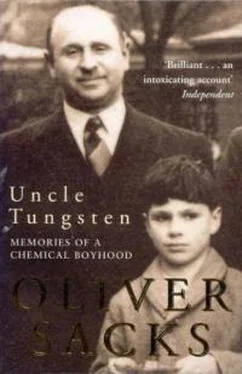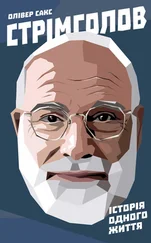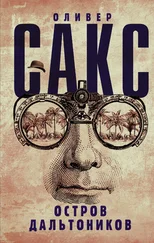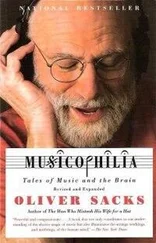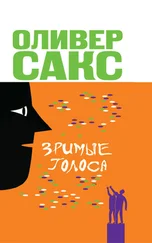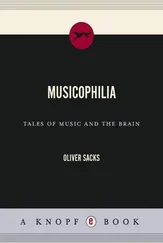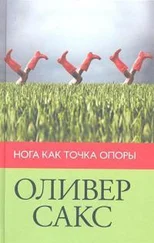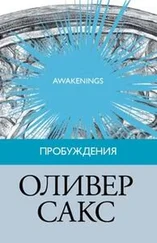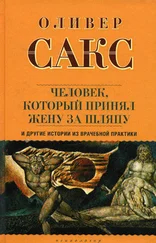One escape from this quandary was to suppose that the energy of radioactive substances had an exterior source; this indeed was what Becquerel first suggested, on the analogy of phosphorescence – that radioactive substances absorbed energy from something, from somewhere, and then reemitted it, slowly, in their own way. (He coined the term hyperphosphorescence for this.)
Notions of an outside source – perhaps an X-ray-like radiation bathing the earth – had been entertained briefly by the Curies, and they had sent a sample of a radium concentrate to Hans Geitel and Julius Elster in Germany. Elster and Geitel were close friends (they were known as ‘the Castor and Pollux of physics’), and they were brilliant investigators, who had already shown radioactivity to be unaffected by vacua, cathode rays, or sunlight. When they took the sample down a thousand-foot mine in the Harz Mountains – a place where no X-rays could reach – they found its radioactivity undiminished.
Could radium’s energy be coming from the Ether, that mysterious, immaterial medium that was supposed to fill every nook and cranny of the universe and allow for the propagation of light and gravity and all other forms of cosmic energy? This was Mendeleev’s opinion when he visited the Curies, though given a special chemical twist by him, for he conceived that the Ether was composed of a very light ‘ether element’, an inert gas able to penetrate all matter without chemical reaction, and with an atomic weight about half that of hydrogen. (This new element, he thought, had already been observed in the solar corona, and named coronium.) Beyond this, Mendeleev conceived of an ultralight etheric element, with an atomic weight less than a billionth that of hydrogen, that permeated the cosmos. Atoms of these etheric elements, he felt, attracted to the heavy atoms of uranium and thorium, and absorbed by them somehow, endowed them with their own etheric energy. [62](I was puzzled when I first came across reference to the Ether – often spelled Aether , and capitalized – confusing this with the inflammable, mobile, sharp-smelling liquid my mother kept in her anesthetic bag. A ‘luminiferous’ Ether had been postulated by Newton as the medium in which light waves were propagated, but, as Uncle Abe told me, even in his youth people had already become suspicious of its existence. Maxwell was able to bypass it in his equations, and a famous experiment in the early 1890 shad failed to show any ‘Ether drift’, any effect of the earth’s motion on the velocity of light, such as one might expect if an Ether existed. But clearly the idea of the Ether was still very strong in the minds of many scientists at the time when radioactivity was discovered, and it was natural that they should turn to it first for an explanation of its mysterious energies. [63]
But if it was imaginable – just – that a slow dribble of energy such as uranium emitted might come from an outside source, such a notion became harder to believe when faced with radium, which (as Pierre Curie and Albert Laborde would show, in 1903) was capable of raising its own weight of water from freezing to boiling in an hour. [64]It was harder still when faced with even more intensely radioactive substances, such as pure polonium (a small piece of which would spontaneously become red-hot) or radon, which was 200,000 times more radioactive than radium itself – so radioactive that a pint of it would instantly vaporize any vessel in which it was contained. Such a power to heat was unintelligible with any etheric or cosmic hypothesis.
With no plausible external source of energy, the Curies were forced to return to their original thought that the energy of radium had to have an internal origin, to be an ‘atomic property’ – although a basis for this was hardly imaginable. As early as 1898, Marie Curie added a bolder, even outrageous thought, that radioactivity might come from the disintegration of atoms, that it could be ‘an emission of matter accompanied by a loss of weight of the radioactive substances’ – a hypothesis even more bizarre, it might have seemed, than its alternatives, for it had been axiomatic in science, a fundamental assumption, that atoms were indestructible, immutable, unsplittable – the whole of chemistry and classical physics was built on this faith. In Maxwell’s words:
Though in the course of ages catastrophes have occurred and may yet occur in the heavens, though ancient systems may be dissolved and new systems evolved out of their ruins, the [atoms] out of which these systems are built – the foundation stones of the material universe – remain unbroken and unworn. They continue to this day as they were created – perfect in number and measure and weight.
All scientific tradition, from Democritus to Dalton, from Lucretius to Maxwell, insisted upon this principle, and one can readily understand how, after her first bold thoughts about atomic disintegration, Marie Curie withdrew from the idea, and (using unusually poetic language) ended her thesis on radium by saying, ‘the cause of this spontaneous radiation remains a mystery… a profound and wonderful enigma.’
The summer after the war, we went to Switzerland, because this was the only country on the Continent that had not been ravaged by war, and we longed for normality, after six years of bombing and rationing and austerity and constriction. The transformation was evident as soon as we crossed the border – the uniforms of the Swiss customs officers were new and shining, unlike the shabby uniforms on the French side. The train itself seemed to become cleaner and brighter, to move with a new efficiency and speed. Arriving in Lucerne, we were met by an electric brougham. Tall, upright, with huge plate-glass windows, a vehicle such as my parents had seen, but never ridden, in their own childhood, the ancient brougham conveyed us noiselessly to the Schweizerhof Hotel, a hotel vaster, more splendid, than anything I had ever imagined. My parents would generally choose relatively modest lodgings, but this time their instincts led them in the opposite direction, to the most sumptuous, most luxurious, most opulent hotel in Lucerne – an extravagance permitted, they felt, after six years of war.
The Schweizerhof stays in my mind for another reason, because it was here that I gave the first (and last) concert of my life. It had been a little over a year since Mrs. Silver, my piano teacher, had died, a year in which I had not touched a piano, but now something sunny, something liberating, brought me out, made me want to play again, all of a sudden, and for other people. Though I had been brought up on Bach and Scarlatti, I had grown (under Mrs. Silver’s influence) to love the Romantics – especially Schumann and the propulsive, exuberant Chopin mazurkas. Many of these were technically beyond me, but I knew them, nonetheless, all fifty-odd of them, by heart, and could at least (I flattered myself) give a sense of their feel and vitality. They were miniatures, but each seemed to contain an entire world.
Somehow my parents persuaded the hotel to arrange a concert in its salon, to let me use the grand piano (it was bigger than any I had ever seen, a Bosendorfer with some extra keys our Bechstein did not have), and to announce that, on the coming Thursday night, there would be a recital by ‘the young English pianist Oliver Sacks.’ This terrified me, and I grew more and more nervous as the day approached. But when the evening came, I donned my best suit (it had been made for my bar mitzvah the month before), entered the salon, bowed, arranged my features into a smile, and (almost incontinent with terror) sat down at the piano. After the opening bars of the first mazurka, I got swept away by it, and carried it to a flamboyant conclusion. There was clapping, there were smiles, there was forgiveness of my blunders, so I charged on to the next, and the next, finishing up finally with a posthumous opus (which I vaguely imagined had somehow been completed after Chopin’s death).
Читать дальше
